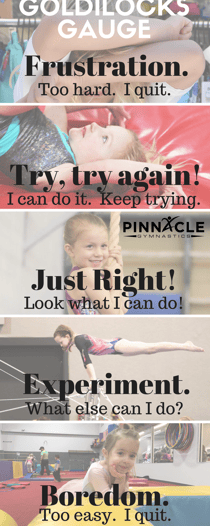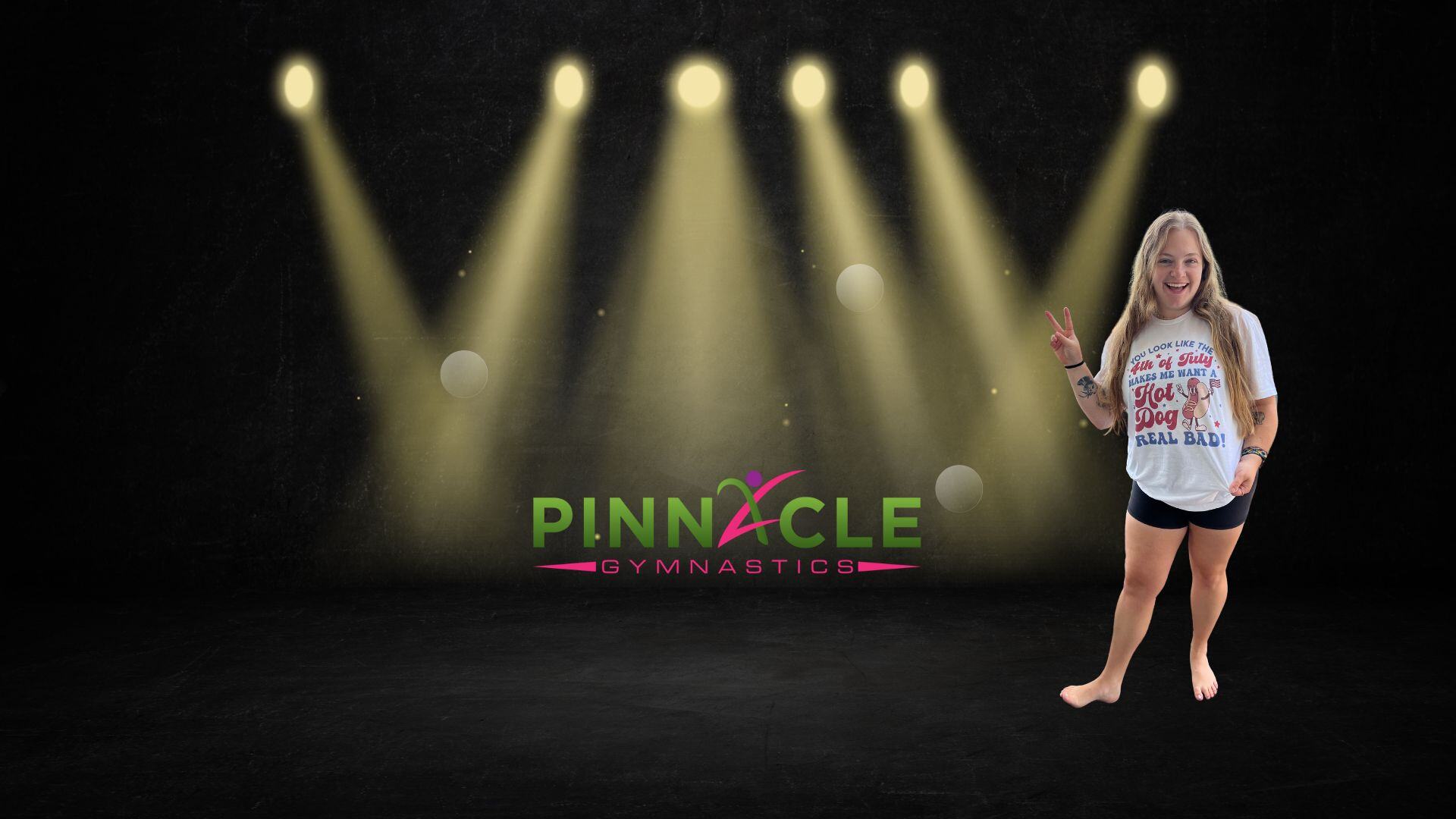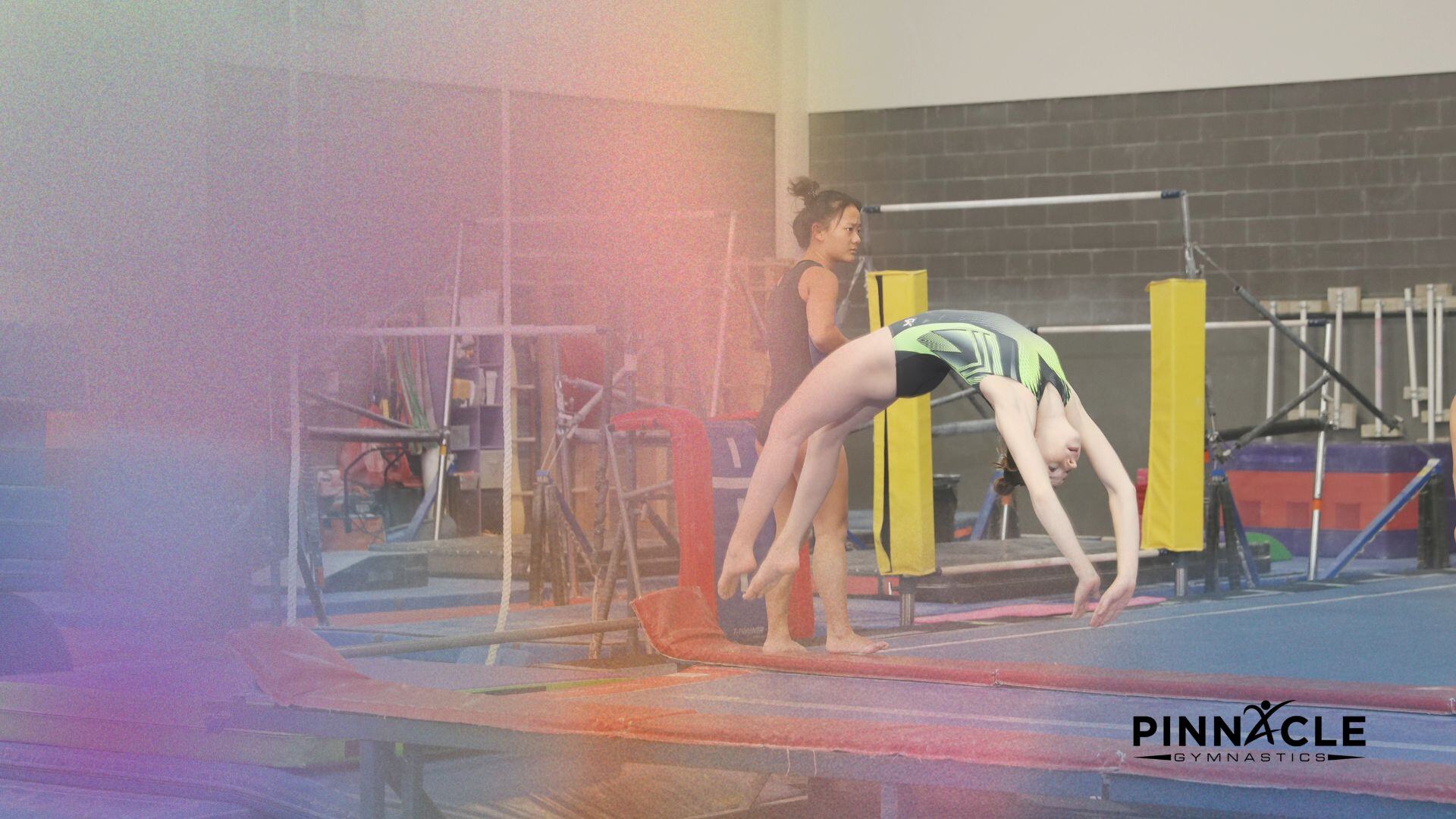How do coaches decide which level is best for my gymnast?
There is a very easy answer to that question, the best level for your child is the level in which they will be most successful. However, the complicated part to that answer is understanding the factors that lead to success. There are many factors to consider.
Factors in deciding which level is best for your gymnast
Physical Readiness is one of the first factors coaches consider is if the gymnast is physically ready for the challenges of the level. Do they have the required strength, flexibility, and skill set to build on? Strength, flexibility and a strong foundation are required to safely teach the gymnast the next set of skills. Gymnastics is best taught through a series of skill progressions and rushing the process because the gymnast is not physically or mentally prepared results in poor gymnastics skills and an unsafe environment.
Mental Readiness is as important as physical readiness. A gymnast's ability to focus for an extended period of time, understand technical corrections, communicate, and overcome obstacles becomes more important with each level. Many times young gymnasts may be physically ready for the next level, but they need time for their mind to catch up. Moving a gymnast when they are physically ready, but not mentally prepared for the challenge can lead to mental blocks or burn out.
Confidence is a huge factor in gymnastics. Gymnasts can by physically and mentally ready for the challenge of a new level but without belief in their abilities we are setting a gymnast up for failure. Confidence is absolutely essential to a gymnast’s competitive meet performance. While confidence can always be improved through positive coaching there are times when a gymnast needs a season for their confidence to catch up to their physical and mental abilities.  Happiness is as important as any other factor. However, sometimes this can be confusing for the parent and gymnast. Often, you will hear that my daughter would be happier moving up and not placing or staying in the same level for a third year rather than transitioning to a different time. This is happiness in the moment. As coaches we are looking for happiness throughout the competitive season. We are looking for opportunities for your child to learn new skills, beam with pride when they nail a routine, and to jump up and down with excitement when their team reaches a goal. We want to see your child happy throughout the season. Keep in mind, the number one reason kids quit a sport is because it is no longer fun.
Happiness is as important as any other factor. However, sometimes this can be confusing for the parent and gymnast. Often, you will hear that my daughter would be happier moving up and not placing or staying in the same level for a third year rather than transitioning to a different time. This is happiness in the moment. As coaches we are looking for happiness throughout the competitive season. We are looking for opportunities for your child to learn new skills, beam with pride when they nail a routine, and to jump up and down with excitement when their team reaches a goal. We want to see your child happy throughout the season. Keep in mind, the number one reason kids quit a sport is because it is no longer fun.
Group placement also comes into play when deciding which level is best for your gymnast. While, the decision of what level your gymnast competes is never based solely on others, coaches would be lying if they said it doesn't come into play. Sometimes when all the other factors do not point a clear direction coaches decide it would be better to move up or repeat to be with a team or with kids of similar age and ability. .png?width=560&name=Different%20Roads%20(1).png)
Scores and placement also come into play, but not to the extent that many parents and gymnasts think. There are certain required mobility scores and rules that must be met. However, the majority of the time if the child is physically and mentally ready as well as confident and happy the scores will match the situation.
More food for thought when it comes to deciding the best level for a gymnast!
The Goldilocks Gauge
Using the factors above coaches use the "Goldilocks Gauge" by Smart Steps. Finding the spot that is just-right. The spot where your gymnast is physically challenged, emotionally engaged, and intellectually stimulated.
Many roads lead to the same destination
There are numerous quotes about all roads leading to the same destination. There is certainly some truth to this in gymnastics. The goal of coaches is to choose the road with the fewest obstacles and the most opportunity for growth. One great example of this is Pinnacle's current level eight team. Of the eight gymnasts on the team there were many different roads taken. We had several athletes skip level five, a few skipped level six, one athlete repeated level six and then skipped seven, two others repeated level eight, while yet another competed Xcel Silver, Gold, and Platinum as her road to level eight. All eight are happy, successful level eights this season. I like to think this is because they moved through the levels in the way that was most successful for them each season.
Understanding the levels
Gymnastics levels can be difficult to understand. Levels 3-5 have set, compulsory routines. While Level 6-10 and Xcel Bronze, Silver, Gold, Platinum, Diamond have set skill requirements. As a parent and gymnast you do not have to know every requirement and detail. Trust that your coach does and will guide you to the best spot.
Learn More:





